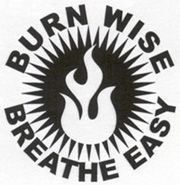Open Burn/Fire Information & Resources
Open Burn Information

DEC manages open burns to minimize health impacts from smoke and keep Alaska's air clean. Open burning regulated by DEC includes residential / agricultural / development land clearing fires, land management fires, incinerators that do not meet emission standards in 18 AAC 50.050, and fire fighter training with fuel and structures. These open burns are regulated and permitted through the open burn application process. The open burn guidance (PDF) also offers more information on the state of Alaska open burn policy and regulations.DNR Burn Permits are required in Alaska from April 1st to August 31st. Burn permits are required state-wide unless area is covered by a more stringent local or federal permit. Even Small Scale Burn Permits are required from DNR for small burns; for burn barrels, burning a maintained lawn of less than 1 acre, and a brush pile of organic material not exceeding 10 feet in diameter by 4 feet in height. For more information, please visit DNR's Burn Permit webpage.
Summary of ADEC, Air Quality Burn Regulations
The person who conducts open burning shall establish reasonable procedures to minimize adverse environmental effects and limit the amount of smoke generated:
General Requirements. A person conducting open burning shall comply with and ensure that:
- The material is kept as dry as possible through the use of a cover or dry storage;
- Before igniting the burn, noncombustibles are separated to the greatest extent practicable;
- Natural or artificially induced draft is present;
- To the greatest extent practicable, combustibles are separated from grass or peat layer and;
- Combustibles are not allowed to smolder.
Black Smoke Prohibited. Open burning of asphalts, rubber products, plastics, tars, oils, oily wastes, contaminated oil cleanup materials, or other materials in a way that gives off black smoke is prohibited without written department approval.
Toxic and Acid Gases and Particulate Matter Prohibited. Open burning or incineration of pesticides, halogenated organic compounds, cyanic compounds, or polyurethane products in a way that gives off toxic or acidic gases or particulate matter is prohibited. See list of prohibited items in 18 AAC.50.065.
Adverse Effects Prohibited. Open burning of putrescible garbage, animal carcasses, or petroleum-based materials, including materials contaminated with petroleum or petroleum derivatives is prohibited if it causes color or black smoke that has an adverse effect on nearly persons or property.
Air Pollution Prohibited. No person may permit any emissions which is injurious to human health or welfare, animal or plant life, or property or which would unreasonably interfere with the enjoyment of life or property.
All open burning is prohibited between November 1 and March 31 in the:
- Fairbanks Northstar Borough PM2.5 Nonattainment Area (PDF Map)
- Juneau Woodsmoke Control Area (PDF Map)
All open burning is prohibited when there is an Air Quality Advisory in effect for your area.
For Air Quality Advisories, check the following links or call:
- Alaska Air Quality Advisories
- Division of Forestry
- Municipality of Anchorage: 907-267-5020
- City and Borough of Juneau: 907-586-5333
Open Burn Contacts
- Interior and Northern Alaska Open Burn Approvals and Complaints Primary Contact
- Frances Olson
- Fairbanks
- 907-451-5173
- SE Alaska Open Burn Approvals and Complaints Primary Contact
- Ross Douglas
- Juneau
- 907-465-5103
- South Central and Southwest Alaska Open Burn Approvals and Complaints Primary Contact
- Nicholas Hansen
- Anchorage
- 907-465-5117

 Indicates an external site.
Indicates an external site.